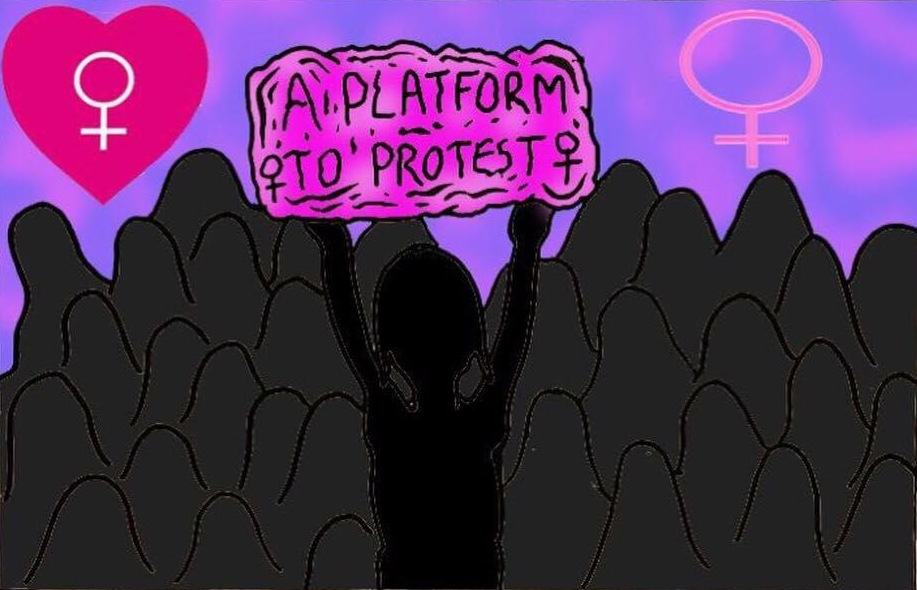Reading Women
To mark International Women’s Day on the 8th March, Penguin are collaborating with Waterstones to open a pop-up shop selling books written exclusively by women and non-binary people. Open from the 5th to the 9th March on 1-3 Rivington Street in East London, the pop-up will host a number of events aiming to ‘celebrat[e] women, past, present, and future’, including the launch of literary magazine Five Dials’ special issue in which women and gender non-conforming artists and writers contribute works on the female gaze.
The importance
Far too often, the platforms where people access their reading materials do not proportionally represent the contributions that women make to literature. The statistics are concerning; they highlight the need for operations, like the pop-up shop, that push women’s voices closer to the centre.
Across the board, reviews for male-authored texts far out-number reviews for books written by women. VIDA, a US-based ‘non-profit feminist organization committed to creating transparency around the lack of gender parity in the literary landscape and to amplifying historically-marginalized voices’, run an annual study assessing the gender disparity in well-known literary journals and book reviews. The 2016 tally revealed some unsettling (though unsurprising) figures; in the Times Literary Supplement, 38% of book reviewers, and only 29% of reviewed authors, were women. Even more disproportionate was the London Review of Books, in which only 18% of book reviewers and 26% of reviewed authors were women.
Research from further afield shows this is not an exclusively British problem. Dr Julieanne Lamond and Dr Melinda Harvey led a study of Australian publishing between 1985 and 2013, revealing concerning patterns that have been in place for three decades. Lamond and Harvey’s work concluded that although two thirds of books reviewed in Australia have male authors, two thirds of published authors are women.
Such statistics are troubling. They speak to the glass escalator effect, a sociological occurrence where, due to the social and industrial advantages of being a (white heterosexual) man, men working in female-dominated fields achieve professional success at a much faster rate than women. A similar effect can be seen where men are far more likely to reach higher levels in professions that involve activities traditionally categorised as feminine hobbies. Where the woman is the cook, the man is the chef (only 18.5% of professional chefs in the UK in 2017 were women!). Where the woman is the writer, the man is the reviewed, prize-winning author.
This disparity is also present in the national curriculum, where children and young people are being taught to read more works by men than women. In 2016, texts written by women made up only 31% of the curriculum for English. Even more marginalised are BAME authors, whose works constitute only 5% of texts taught in some GCSE courses despite people from BAME backgrounds accounting for fourteen percent of the UK population. As schooling is one of the major ways that people access literature, it is not unproblematic that the make-up of the authors on the curriculum does not nearly reflect the society in which most UK pupils live.
In 2016, a secondary school and sixth form in Ilford launched the Curriculum Campaign: a petition to encourage the government to acknowledge the lack of representation of women and ethnic minority authors in the English curriculum. Olivia Eaton, an English teacher on the campaign, taught pupils of thirty ethnicities and who had between them forty languages. Of her pupils, she argued that 'it’s important they’re able to recognise themselves and their heritage in some of the texts they study, and that they’re exposed to a variety of authors and backgrounds to gain a better understanding of the society they live in. The current reading lists are weighted in favour of white, deceased, male writers and this has - in turn - muted the voices of an integral part of our society, sending a message to students that these other voices and narratives are not as relevant'.
If we don’t read work by women, and if we don’t review and talk about works by women, we risk ignorance, silencing, and further exacerbating the glass ceiling. It is not enough to throw in a token Brontë or Austen book onto a reading list. Though it is worthwhile to read Shakespeare and Dickens, it needs to be highlighted that they are not the only options. As such, it is important to promote access to and raise the profile of women authors – and other marginalised voices, like BAME writers.
Though the Penguin-Waterstones shop is temporary, it will be a good visual indicator of the vibrant and continuing contribution women make to literature. It will act as a reminder of the importance to make the curriculum better reflect its students and their worlds. It is a good opportunity to diversify your bookcase and, as Penguin and Waterstones hope, ‘find your inspiration to shout, rebel and make waves’.
Image sourced via English Pen





